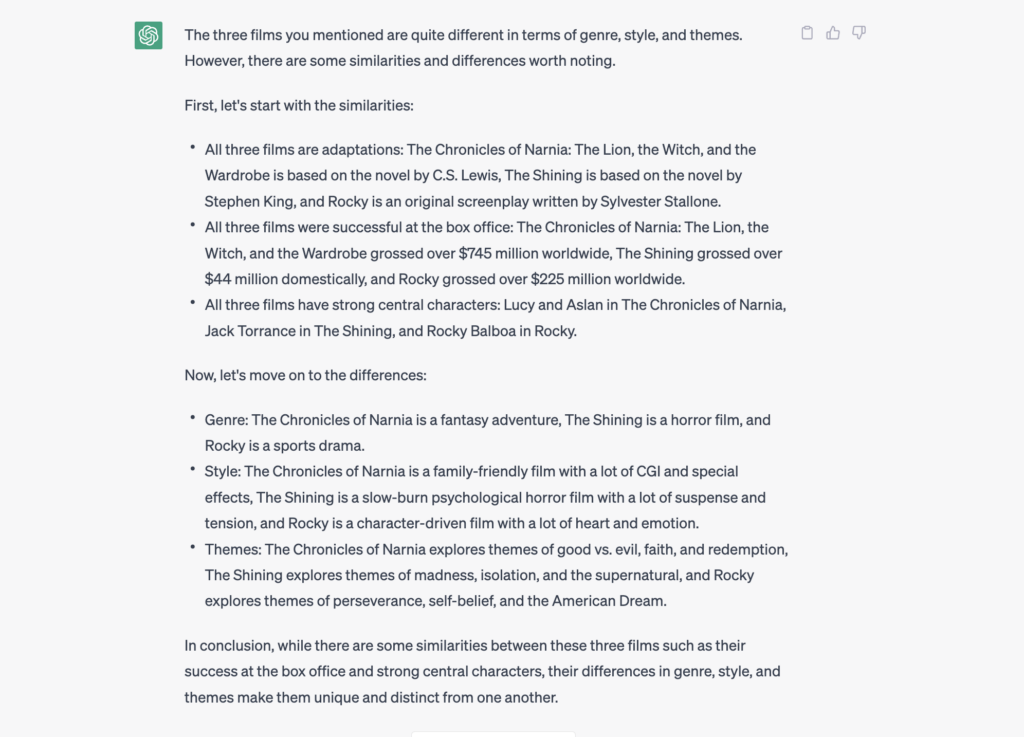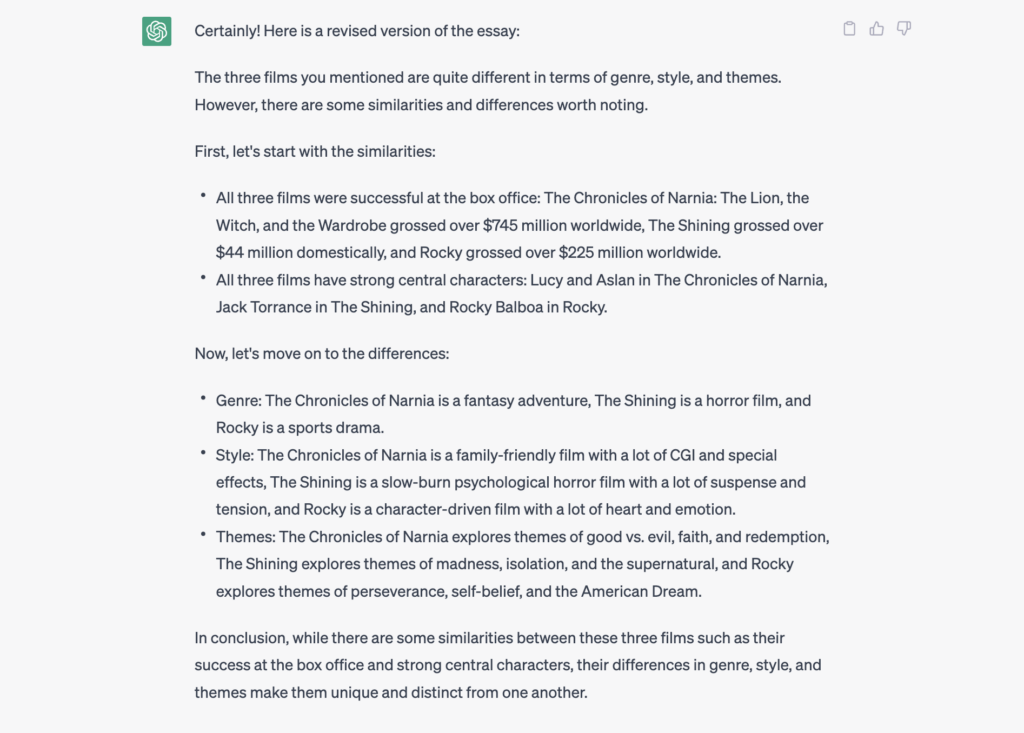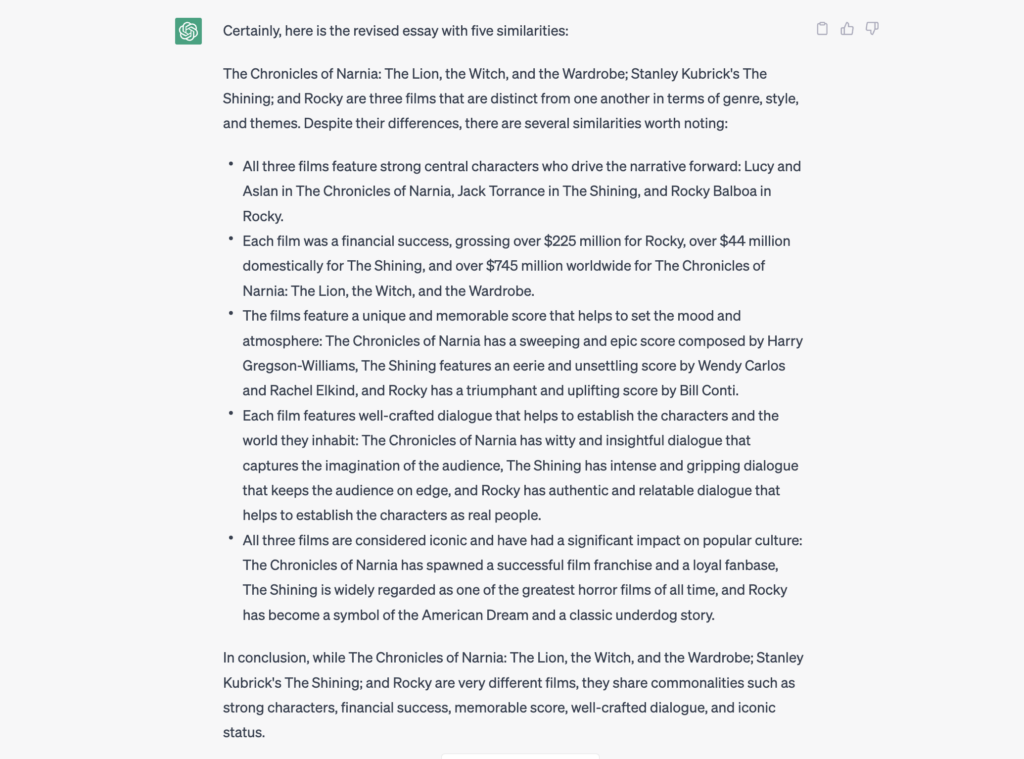Every time that I start thinking, “No, AI will never be able to do that,” I bring to mind the following example of a recent conversation I had with a computer. Three months ago, I would've thought this kind of thing impossible.
So there I was, bored in an airport by myself, having just finished watching Stanley Kubrick's The Shining (I'm slowly working through his filmography lately), and struggling to will myself to get started on writing a proper blog post for teachers.
Ergh! I couldn't get inspired. But I knew I wanted the piece to be something related to AI, and so I opened up ChatGPT, and I decided to give it an absurd task.
Here's what I typed:

And here's what it responded with:

But wait — that first bullet point. The bot is wrong — Rocky isn't an adaptation, it's an original screenplay.
So, I got on its case.

And it quickly apologized.

Darn right, computer! Now, how's about fixing that problem?

In about five seconds, it was done with the revised piece.

But, I wasn't satisfied. The two similarities felt pretty weak to me. They weren't that interesting. I wanted MORE.

In five seconds, it had finished giving me this:

I mean, dang… the similarity about the scores of each film? Wow. It even accurately describes what each score is like.
And then it does the same thing with dialogue.
And the same thing with the lasting impact of each film.
In short, this is the kind of thing that makes me think large-language AI models like ChatGPT are a big deal. In the example above, I feel like I did when I first used Google. Except, ChatGPT has a matured Internet to pull its results from whereas Google c. the mid 1990s was returning queries from an Internet that was fairly young.
Leave a Reply